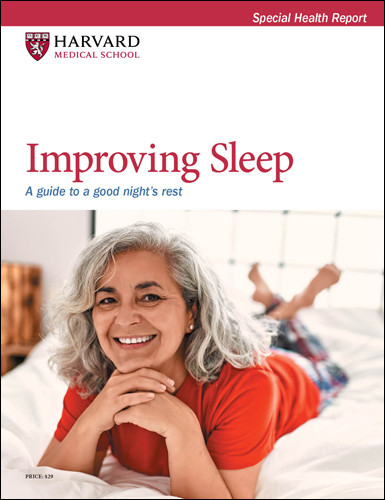Erratic sleeping behavior may increase diabetes risk
In the journals
- Reviewed by Howard E. LeWine, MD, Chief Medical Editor, Harvard Health Publishing; Editorial Advisory Board Member, Harvard Health Publishing

Seven to nine hours of sleep per night is generally regarded as a healthy amount. But sometimes people sleep too little, and then try to catch up by sleeping more than usual. However, a study published online June 27, 2024, by the journal Diabetologia found that this kind of erratic sleeping may increase a person's risk for diabetes.
Researchers collected health questionnaires from approximately 36,000 adults in their 50s. The information included the average number of hours they slept on weekdays and weekends. The researchers divided sleep patterns into three categories: short (less than seven hours), normal (seven to nine hours), and long (more than nine hours). Next, to show how consistently people slept from night to night, they created nine sleep trajectory combinations — for example, short-short, short-normal, short-long, normal-normal, and normal-short.
Five years later, the questionnaires were repeated. The researchers found that people who regularly reported short-long or long-short sleeping patterns — meaning they bounced back and forth from sleeping less than seven hours to longer than nine — had a 50% higher risk for diabetes than people who regularly slept the normal seven to nine hours.
While this study only showed an association, it underscores the potential impact of sleep on diabetes. Other studies have shown that poor sleeping habits can lead to elevated blood sugar levels and weight gain, both of which are risk factors for diabetes.
Image: © JGI/Tom Grill /Getty Images
About the Author

Matthew Solan, Executive Editor, Harvard Men's Health Watch
About the Reviewer

Howard E. LeWine, MD, Chief Medical Editor, Harvard Health Publishing; Editorial Advisory Board Member, Harvard Health Publishing
Disclaimer:
As a service to our readers, Harvard Health Publishing provides access to our library of archived content. Please note the date of last review or update on all articles.
No content on this site, regardless of date, should ever be used as a substitute for direct medical advice from your doctor or other qualified clinician.
















